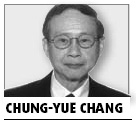Next step for Obama must begin with understanding

US President Barack Obama ignored China's strong opposition and repeated protests and met the Dalai Lama in Washington on Feb 18. The intent of the meeting, which came just three months after Obama's "dream" visit to China, was far from peaceful. The reason is two-fold.
For the Dalai Lama, the meeting is another step toward realizing his goal of "Tibet independence". The world realizes that the Dalai Lama, for all that he represents today, is an invention of Western powers. The West supported the rebellion in Tibet in 1959, spirited him out of Lhasa, and then groomed him into a political "pawn" against China. The nature of the creation is evident in the "rhetoric" about China that the Dalai Lama indulges in, which the West has brewed carefully for half a century.
The "pawn" has become the political "Tibet card" today, which is played to advance the renewed interests of the West. The Dalai Lama's visit the US, like the frequent ones to other countries, was aimed at cashing in on the "Tibet card" for political gains and replenishing it for future dealings.
The world knows that the Dalai Lama, having spent half a century (three quarters of his life) outside Tibet, has changed. Tibetan Buddhism, after being transplanted outside Tibet, has undergone a great change. Its consciousness reflects many of the Anglo-American and European values in order to serve the political, religious and cultural interests of the Dalai Lama's "Tibet card-holding" patrons.
Tibetan Buddhism, by definition, should thrive in Tibet. There is something about the Himalayan air and soil - Himalayan mystique, if you will - which Tibetan Buddhism simply cannot do without. But the Tibetan Buddhism that the Dalai Lama professes today is indigent and deprived of its native nourishing mystique, and he knows this full well. The Dalai Lama and his followers yearn to return home. But their identity (political, cultural, economic, social and religious), greatly altered by vested Western interests with his support, has become a massive block on their road back home.
Sadly, the Dalai Lama is still under the illusion that his patrons will carry him back home in cloud of glory if he plays the "Tibet card" well. But Buddhist sensitivity to impermanence should have told him that the value of his "card" would one day be reduced to naught.
The door to return home, however, will always be open for the Dalai Lama and his followers. To enter it, they only need to remove their self-created roadblock. But time is of the essence. And the Dalai Lama has missed this simple Buddhist truth.
For Obama, the meeting with the Dalai Lama has a different meaning. Three months ago, he rode his "cooperation" wave to Beijing. Today, his deeds (trade and currency issues, arms sales to Taiwan, efforts to interfere in the Google affair, the meeting with the Dalai Lama) have pushed US-China relations down to a new low.
Why this huge discrepancy between his words and deeds?
Americans have conflicting views on China. Some of them see China as a friend, others as a foe. It so happens that the political need to express both the views has fallen on Obama's shoulders. But at this crucial historical juncture, the US needs to make a judicious strategic choice on China.
The world welcomes the US and China as friends, not as foes. There are two reasons why the US sees China as a foe. First, the possibility of losing the superpower status has made the US insecure and wary of emerging nations like China, India and Brazil. This feeling was reflected in Obama's State of the Union address: "I do not accept second place for the United States of America." Second, although the Cold War is over, its mindset is probably still alive.
Before the US succeeds in portraying China as a foe, something needs to be said about China. China is not a country to be feared for three reasons. First, its national policy has never been to seek hegemony. Second, no pattern of aggression or expansionism is evident in its long history. And third, while Chinese culture is pacifist, it is has always laid stress on strong defense.
Points one and two are documented facts. The third needs to be elaborated to make the other two points clear. Chinese thinkers, from ancient times, have never attached pride to "military might". They prefer "peace through strong defense". Confucius, for example, has "nothing to say about the use of force", yet for "effective government", (he) "includes sufficient arms for defense".
Laozi concurs with Confucius, but adds that a victorious army should be greeted with "funeral music" on its return. Mozi condemned war outright, but wrote in exhaustive details how to defend a city. Mozi's followers were in great demand because they could to do exactly that: defend cities. And let us not forget Sunzi, who said: "The highest excellence is to subdue the enemy's army without fighting at all." Incidentally, China's anti-war but strong defensive posture is signified by the very presence of the Great Wall.
Let us hope the US understands China and realizes that the world needs constructive cooperation, not destructive opposition.
The author teaches philosophy in the United States.
(China Daily 02/23/2010 page9)














